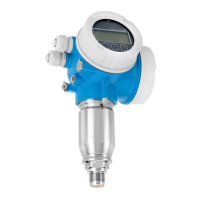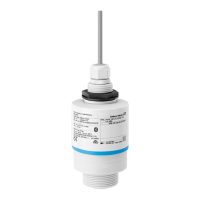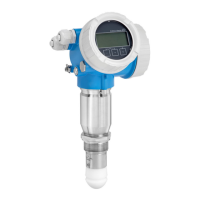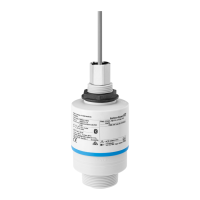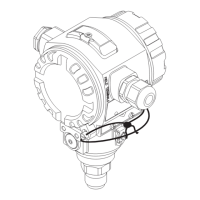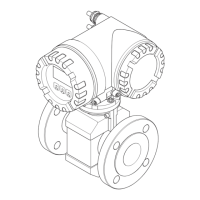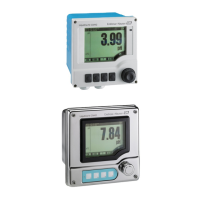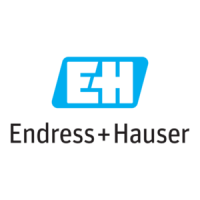XA00677F-A Micropilot FMR50/51/52/53/54/56/57
16 Endress+Hauser
Optional specifications
Safety instructions:
General
• Staff must meet the following conditions for mounting, electrical installation, commissioning and
maintenance of the device:
– Be suitably qualified for their role and the tasks they perform
– Be trained in explosion protection
– Be familiar with national regulations (e.g. IEC/EN 60079-14)
• Install the device according to the manufacturer's instructions and national regulations.
• Do not operate the device outside the specified electrical, thermal and mechanical parameters.
• Only use the device in media to which the wetted materials have sufficient durability.
• Refer to the temperature tables for the relationship between the permitted ambient temperature for the
sensor and/or transmitter, depending on the range of application, and the temperature class.
• Modifications to the device can affect the explosion protection and must be carried out by staff authorized
to perform such work by Endress+Hauser.
Safety instructions:
Special conditions
Permitted ambient temperature range at the electronics housing: –40 °C T
a
+80 °C.
Observe the information in the temperature tables.
Basic specification, Position 5 (Housing) = C
• In Zone 0, avoid sparks caused by impact and friction.
Basic specification, Position 5 (Housing) = A
• Avoid electrostatic charging of the housing (e.g. friction, cleaning, maintenance, strong medium flow).
Device type FMR50, FMR52, FMR53, FMR54 (planar, enamel), FMR56
• An antenna coated with non-conductive material can be used if avoiding electrostatic charging
(e.g. through friction, cleaning, maintenance, strong medium flow).
Device type FMR51, FMR57 and Optional specification, ID Ox (Accessory Mounted) = OW
• An antenna coated with non-conductive material can be used if avoiding electrostatic charging
(e.g. through friction, cleaning, maintenance, strong medium flow).
• In the case of process connections made of polymeric material or with polymeric coatings, avoid electrostatic
charging of the plastic surfaces.
• In the event of additional or alternative special varnishing on the housing or other metal parts:
– Observe the danger of electrostatic charging and discharge.
– Do not rub surfaces with a dry cloth.
11-13 Process
Connection
FMR53 RxJ
RxF
Thread, 316L
Thread, PVDF
FMR50/56 UAE
XR0
XxG
Mounting bracket
Connection, without flange/mounting bracket
Slip on flange (different sizes)
FMR57 RxJ
XxJ
Thread, 316L
Align. device (different sizes)
*
1
FHX50 is approved according to DEK12.0046X or DEKRA 12ATEX0151X
In connection with "Housing" = "A": Observe the specifications in the "Overvoltage protection" ( ä 18) and
"Temperature tables" ( ä 18) chapters!
ID Selected option Description
Nx,
Ox
Accessory
Mounted
FMR5x NA Overvoltage protection
FMR51, FMR57 OW Horn protection, PTFE, no airpurge possible
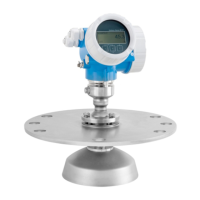
